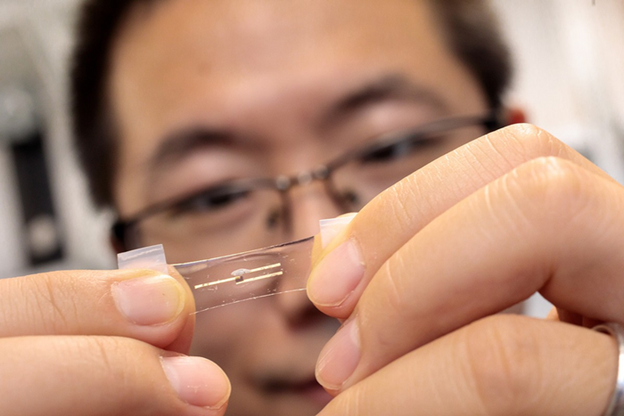“Computer” Feels Like Skin but Analyzes Health Data Via AI
Researchers at the University of Chicago’s Pritzker School of Molecular Engineering developed a flexible, stretchable computer to process information that mimics the human brain. The bridged wearable technology with artificial intelligence and machine learning can analyze health data right on the body. This will allow health to be tracked continuously by wearable electronics that detect disease before symptoms appear.
The future of healthcare includes wearable biosensors to track complex health indicators such as oxygen levels, sugar, metabolites, and immune molecules in people’s blood. The sensors must conform to the skin to work. Skin-like wearable biosensors are emerging and collecting more information in real-time. These devices allow doctors to put a single piece of data into the broader perspective of a patient’s history and other health parameters.
The team designed a chip to collect data from multiple biosensors and draw conclusions about a person’s health using cutting-edge machine learning approaches. They turned to polymers, which can be used to build semiconductors and electrochemical transistors but can stretch and bend. The chip— called a neuromorphic computing chip—functions like a human brain, able to store and analyze data in an integrated way.
The group used the device to analyze electrocardiogram (ECG) data and classify ECGs into five categories—healthy or four types of abnormal signals. Then, they tested it on new ECGs. It accurately classified the heartbeats.

